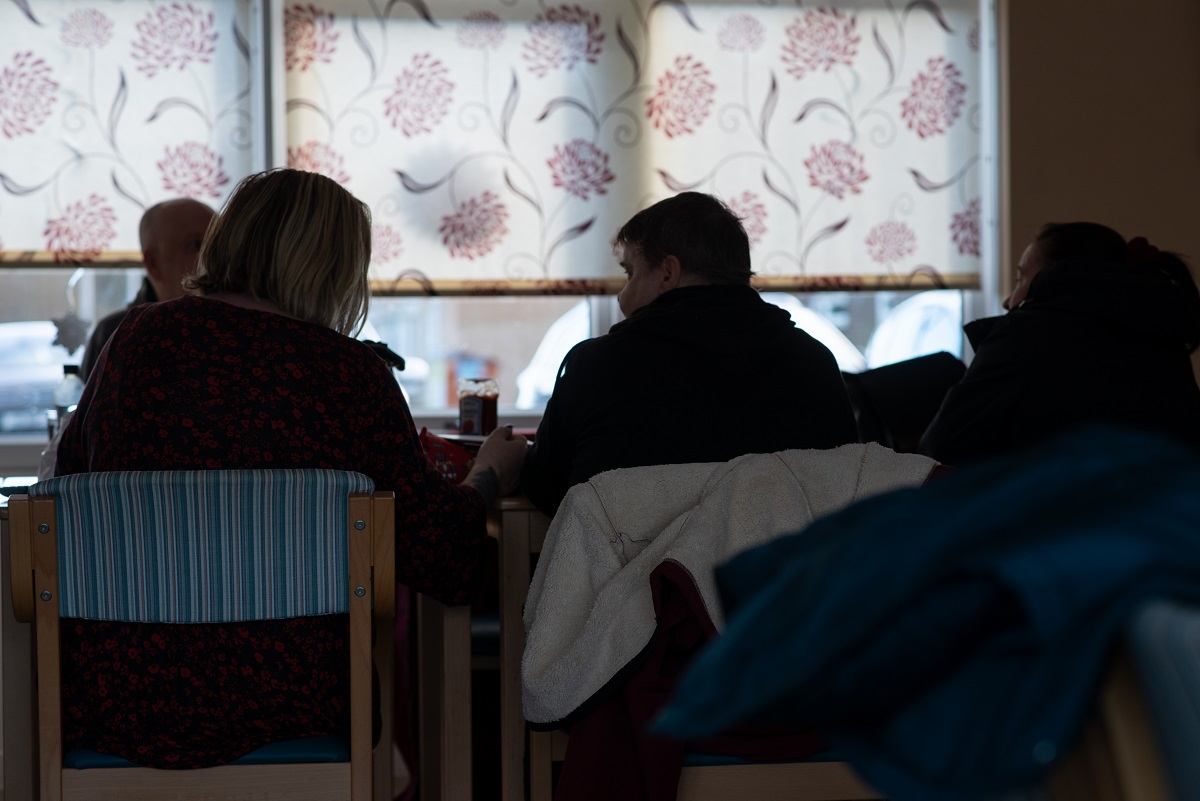'People behave like this, leave, call it a shithole': Sexual harassment reality in Blackpool
I began the Reclaim Blackpool campaign to help women share their experiences of sexual harassment in the town. Here, those people tell their stories of spiking, verbal abuse and feeling unsafe out in Blackpool
Hundreds of women have spoken of sexual harassment, spiking and verbal abuse in Blackpool.
The stories come from all areas of life but are most common in the night time economy. And it’s stories like these that mean I’m on my way to a specially-organised party this evening in response to one of the most challenging nights on the calendar for females in Blackpool.
“You’re brave,” the taxi driver says as I ask him to take me to town. “It’s Mad Friday and young farmers’ weekend.”
He’s got a point. Usually the mass arrival of young farmers – mostly lads under the age of 26 who have escaped the countryside for a couple of nights to crawl the bars of Blackpool town centre – would be enough to make most local women steer well clear.
In 2018 the National Federation of Young Farmers cancelled the long-standing annual event after videos of their members’ drunken antics sparked local outrage.
But in 2021 they returned with an unofficial AGM organised by the newly-formed Young Farmers Community. During their “unrivalled social occasion to let off steam”, which has now seen the addition of a new “winter shindig”, they aim “to uphold the reputation of young farmers”. They certainly do that.
The branded polo shirts the young farmers order via event organisers feature slogans of their choosing – seemingly the more misogynistic, the better.
Many of them liken women to the animals they farm or describe extreme sexual acts verging on sexual assault.
The Blackpool Lead reached out to the Young Farmers Community for comment.
Women who live in Blackpool can be left feeling like they are treated as fair game by men who come to the town to behave in ways they likely never would at home. In some cases, similar to the young female farmer, they believe that they are.
Reclaim Blackpool is a campaign for women’s safety I started by asking local women to share stories of public sexual harassment in 2021. While stories have been shared from our schools, parks, public transport and other public spaces, the night time economy is where the problem is most prevalent.
Bank Holiday May weekend 2023 was a busy one for Blackpool and for the campaign, which plots stories of everything from catcalling to sexual violence on a map as a strong visual reminder of the misogyny and violence women experience every day.
Alongside complaints about the young farmers’ shirts and general behaviour, we received video footage of a local woman being verbally abused by a group of male tourists.
“The sad thing is they are probably mostly married men. Do their wives know that they find abusing a young girl so hilarious?” said Aishley, who filmed the incident in which one of the men exposes himself and openly urinates.
“People like this come to Blackpool every weekend, behave like this, leave, and then call it a shit hole.”
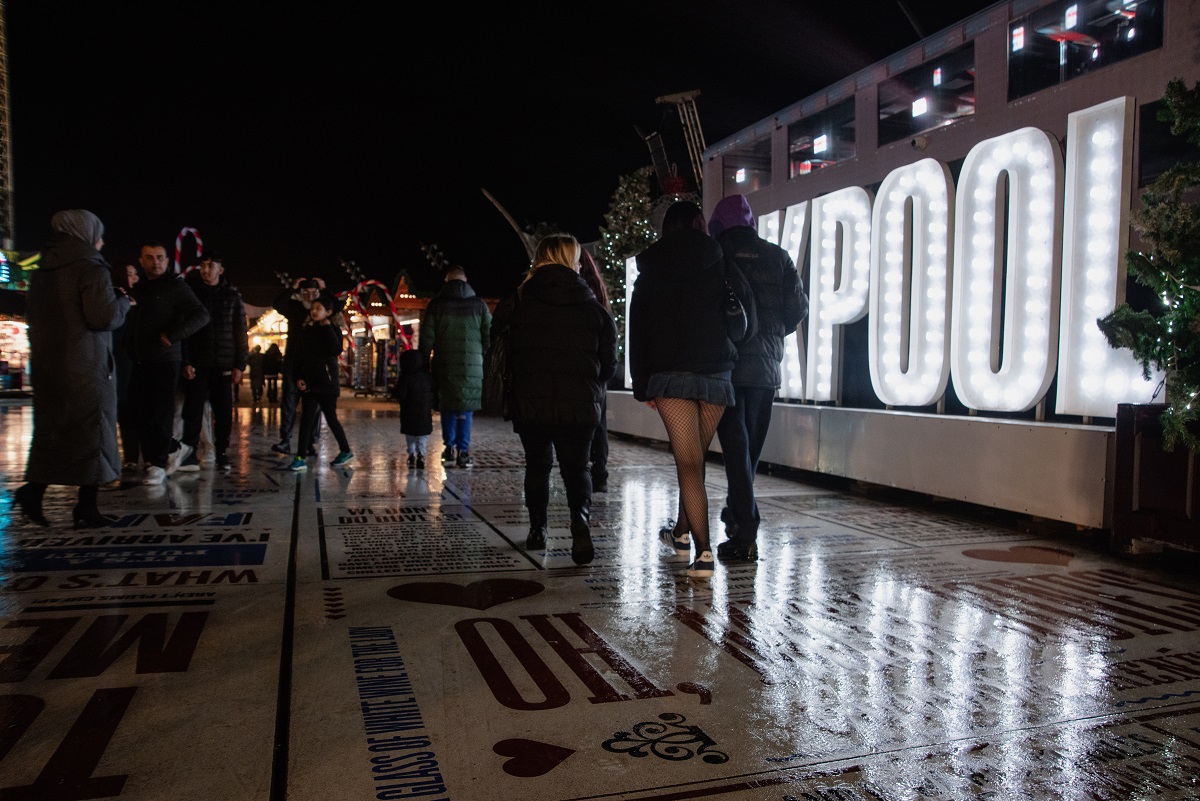
Blackpool at night. Credit: Claire Walmsley Griffiths
Other reports included a potential spiking, groping and threats of rape.
Leah, a 27-year old woman, was on a hen party that weekend when a man approached her table and asked her to come back with him to his hotel.
“I said no and went to walk away. He grabbed me by the wrist and told me I was coming with him,” she said. “My partner was outside so luckily I managed to seek help from him. In the same bar on the same night, I was stood at the bar ordering a drink and a random man came up behind me and smacked my bum.”
Leah’s story is one of over 250 plotted on Reclaim Blackpool Map – most in the last 12 months as awareness about the campaign has grown.
“People like this come to Blackpool every weekend, behave like this, leave, and then call it a shit hole.”
What began as an online project following the murder of Sarah Everard in 2021 has grown into an activist movement that holds space for women, holds men to account and campaigns for change.
As well as a monthly women’s group, a group of male allies now meet regularly to discuss how they can support women in the fight against public sexual harassment. There are twice-weekly women’s-only dog walks, while workshops and events have focussed on craftivism, creative movement, skateboarding, and women’s representation in areas including history and in horror.
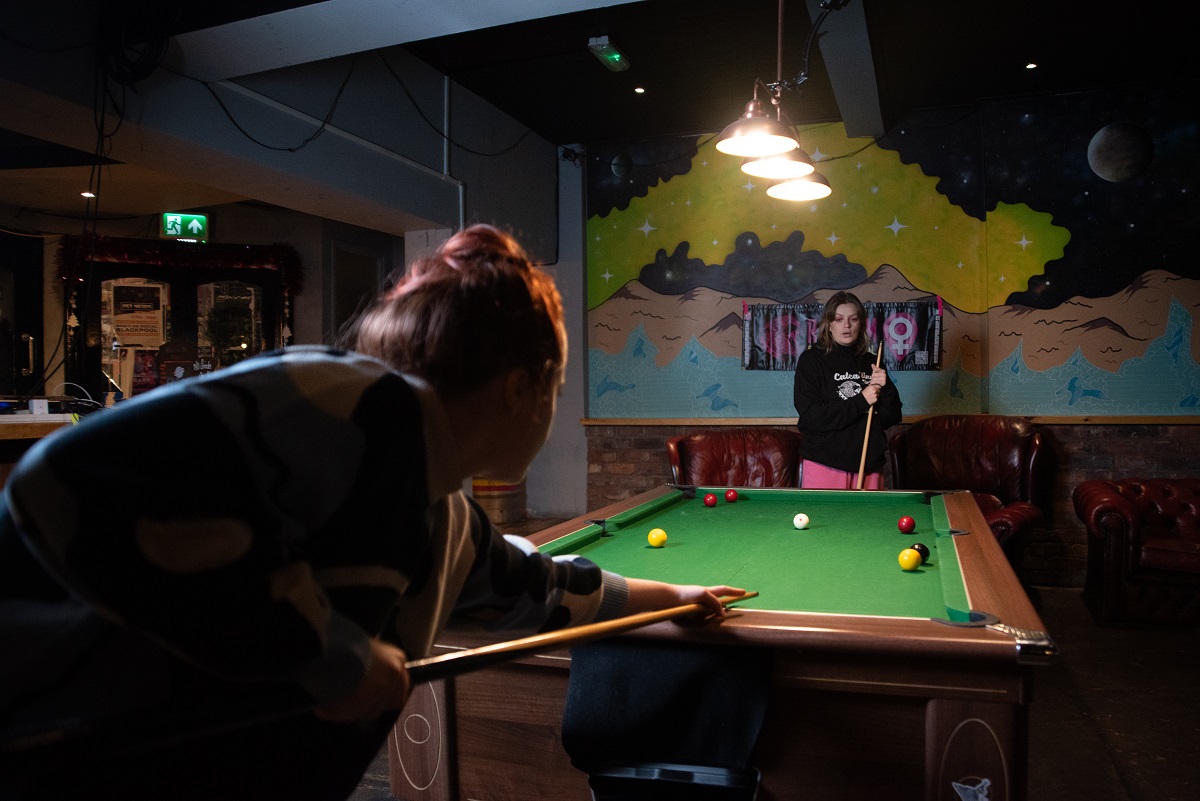
Reclaim at Bootleg Social. Credit: Claire Walmsley Griffiths
A few days earlier Reclaim Blackpool activists had joined others with placards and banners to Reclaim The Night through the town centre, passing bars and clubs where incidents have been reported. Some people cheered us on, while others shouted at us to “get back in the kitchen”. But tonight I’m getting the taxi to our most radical act yet. While Mad Friday unfolds and young farmers embarrass themselves, we’re hosting a party and, tonight, it’s girls only.
“This feels holy,” Izzy Durose tells me as we stand watching Her House, a femme DJ dance and drag collective from Blackpool, play their funky set of songs including Aretha Franklin’s Respect. Izzy is a local artist and LGBTQ+ activist who works with Reclaim to advocate for the queer community.
Women on Reclaim Blackpool Map have described how rejecting men’s advances on the basis of being gay is often received as a challenge. Other gay women have shared stories of how their rejections of men have escalated into physical violence.
Tonight, women do not face the split second decision when a man propositions them – whether to respond politely and hope this doesn’t encourage more attention, or to reject them and risk angering them.
Some women have dressed in daring ways they wouldn’t if men were around. Others play pool for the first time in years.
“It’s a good job there’s no blokes around,” laughs Grace Harvey, who’s been attending Reclaim Blackpool women’s group and events for the past year. “I’m terrible!”
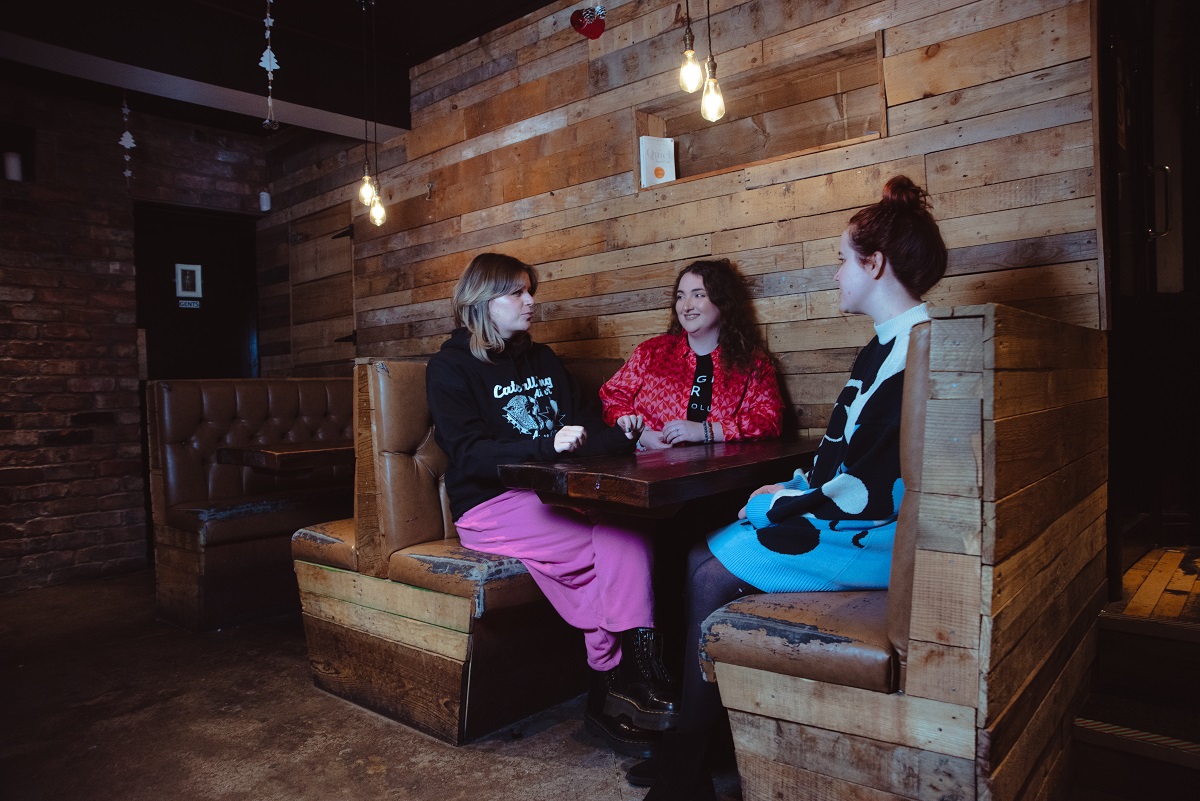
Girls Only at Bootleg Social. Credit: Claire Walmsley Griffiths
“Being able to play pool like this is just a basic freedom we’re not usually afforded,” says Reclaim activist Becky Davies, who’s good at it but remembers how the last time she played with three male friends they argued over who would have to “take her” as a doubles partner.
“Just being able to bend over a pool table and not being concerned that your tits are out, or your arse is out, and that some guy’s going to come up behind you or look down your top – we have to think about these things all the time.
“In this space we’re allowed to dress how we want, we can talk how we want, we can leave our drinks, we can be silly. We’ve just been being daft all night and you can’t do that when guys are around – you’ve got all these invisible boundaries that we deal with every day. They are so embedded and normalised that we don’t even realise we’re navigating them.”
Becky is the woman behind tonight’s girls’-only night. It’s also her first night out since giving birth to her son two months ago. Her best friend, Carla Wilson, recalls her own first night out after giving birth.
“I was out for my sister’s birthday and we were having such a good time,” she says. “I was wearing a skirt and it was the first time I felt good about myself since having the baby. This guy decided to lift up my skirt and touch me all over. It felt like such a violation.
“Security were really good and threw the guy out, which I was thankful for, but I should be able to feel good and wear what I want without this happening.”
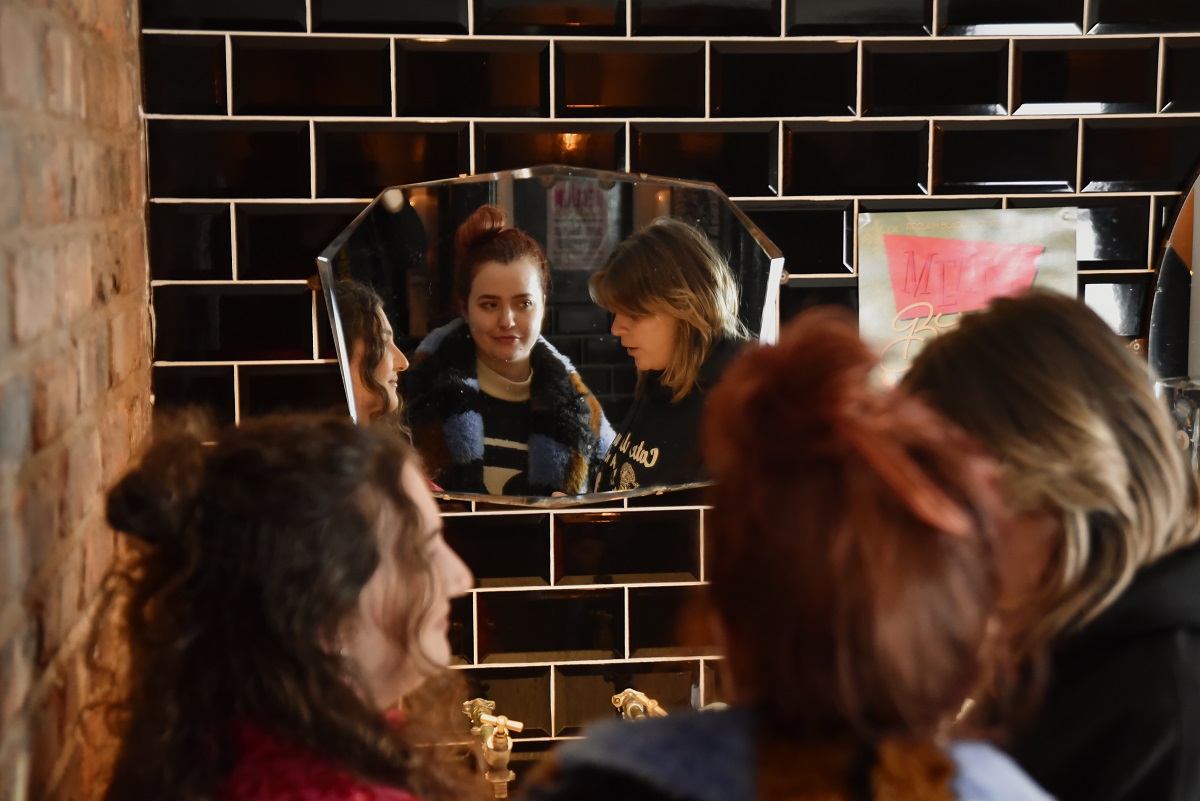
“Security were really good and threw the guy out, which I was thankful for, but I should be able to feel good and wear what I want without this happening.” Credit: Claire Walmsley Griffiths
“For a lot of the girls that we deal with, these experiences can be paralysing and you’re the one who changes,” Becky points out. “It’s how we’ve been told to deal with it, but that’s not the way it should be. When girls get catcalled for what they’re wearing they’ll change how they dress and I’m just bored of girls changing the way they behave just to be safe. I wanted to put on a night where we didn’t have to contend with any of that.”
Since an early report on Reclaim Blackpool Map was plotted here, Bootleg Social, our venue for tonight, has been central to the campaign, offering free space for events, displaying posters and ensuring staff respond appropriately when women raise concerns.
“I was wary at first,” admits bar owner Stephen Skelly who also hosts the Reclaim Blackpool men’s group and built the campaign’s website. “I thought that having a story of sexual harassment at Bootleg highlighted would make people think it was an unsafe place. But, talking to the women in the campaign about their experiences, I realised that they experience it everywhere and that it’s better to take responsibility, call it out and make it clear that this behaviour won’t be tolerated here.”
Tonight Stephen has hired female bar and door staff but mans the entrance himself. A few men have asked to come in, most of them surprised but accepting that it’s women-only, but the most surprising thing to him is that, for the first time ever, no one has asked him to watch their drink – routine for women on an ordinary night.
I lose track of my drink more than once throughout the night but drink it without fear when I eventually locate it. It’s the kind of confidence Serena Paige had in Bootleg a few months earlier.
“I was there for an emo night – a night I’ve been to so many times. I know the people that work there, I know the crowd and the kind of people who go,” she says.
Serena can only think of a few split seconds when she was stood alone and rooting around in her bag for her phone when her drink could have been spiked but a check of CCTV revealed nothing.
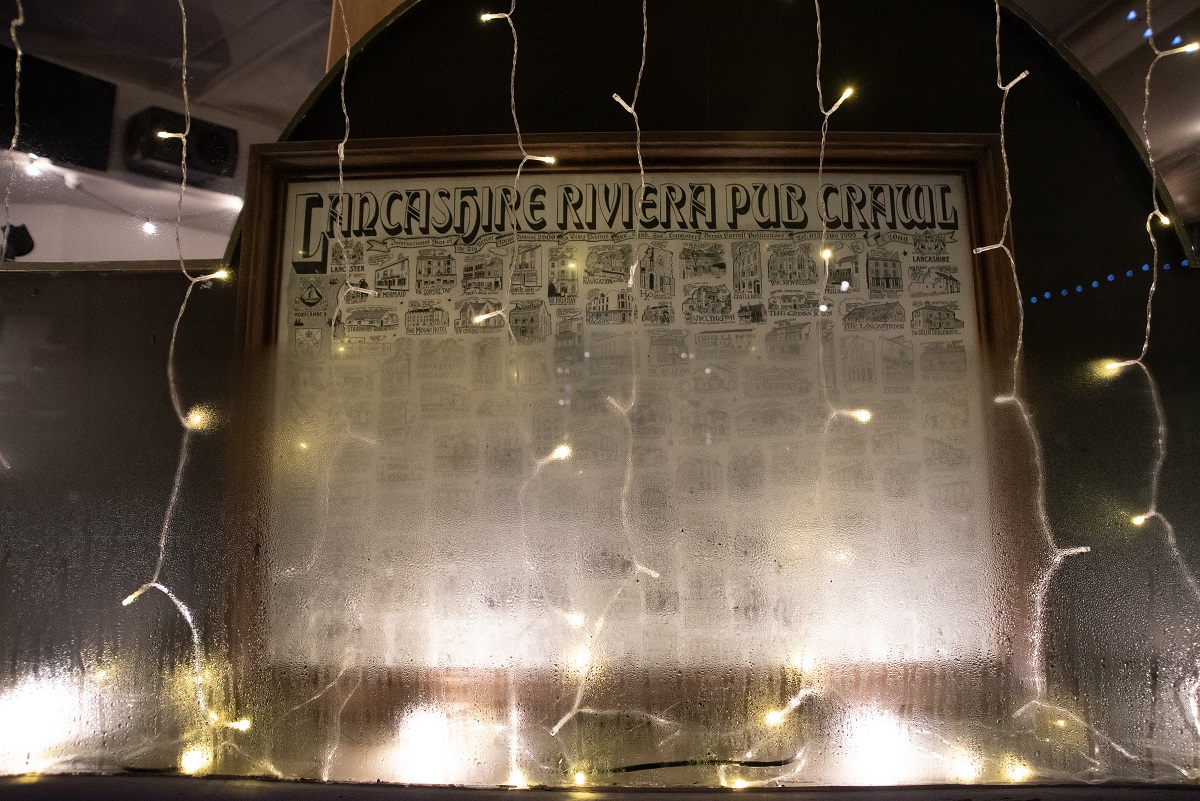
"It’s better to take responsibility, call it out and make it clear that this behaviour won’t be tolerated here.” Credit: Claire Walmsey Griffiths
By the time her boyfriend Jamie returned from the toilet Serena could barely stand up on her own. Knowing something was wrong he took her outside. She could hardly manage the stairs.
“I vaguely remember being stood outside and leaning against the glass. I was just totally gone. Jamie said, ‘I think you've been spiked’ and it kind of set in. I was like, oh yeah, this is actually kind of weird because I was more or less sober 20 minutes ago.”
Jamie got them a cab and within a couple of minutes Serena was vomiting.
“I had no control, it was all over me. I remember saying in the cab, ‘I'm so sorry. I'm so sorry. I'm so sorry’ and crying my eyes out.”
The next few days were a hangover from hell – sleeping, vomiting and dizziness. It persisted into Monday when she had to leave work at lunchtime and sleep for the rest of the afternoon. The next day Serena visited urgent care, where her vitals were checked before she was sent home. She says it took her a full week to feel fully well.
Spiking is a notoriously difficult crime to prosecute with fewer than 2 per cent of offences reported to police resulting in a charge. A Home Office report last month revealed that between May 2022 and April 2023, there were 6,732 reports of spiking in England and Wales, including 957 incidents of needle spiking. The majority reported by women, typically after incidents in or near bars and clubs.
The report came as parliament announced a string of measures to crack down on spiking including more training for door staff and funding for testing kits. But while Protection from Sex-Based Harassment in Public was passed as law in 2023, the measures to tackle spiking stopped short of making it a specific offence, with ministers pointing out that it is already covered under several areas of legislation.
Instead, they pledged to modernise the language used in legislation to make clear it is a crime.
The Home Office report also acknowledged that spiking is significantly under-reported and an online tool has been promised for police forces to make it easier for people to anonymously report spiking.
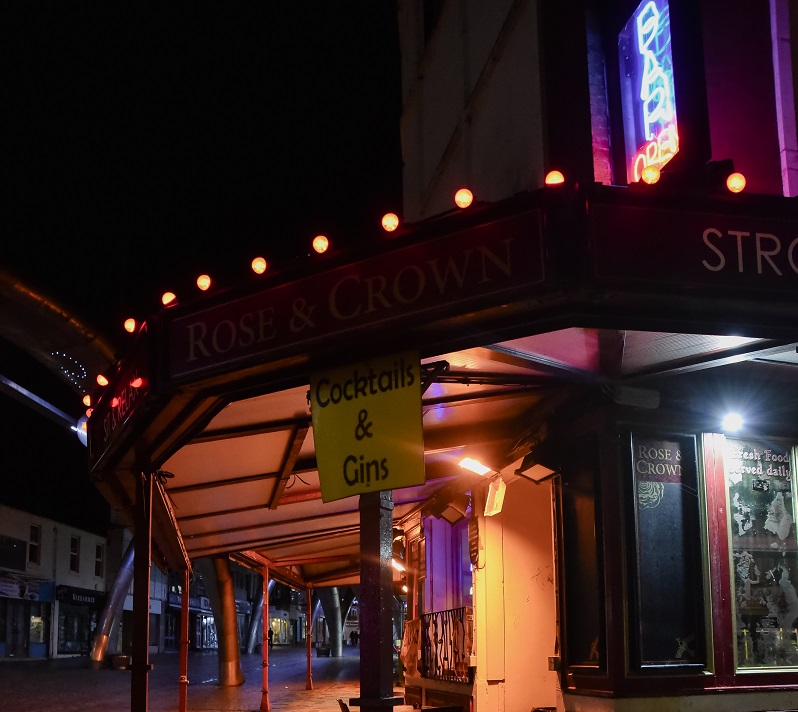
Blackpool at night. Credit: Claire Walmsley Griffiths
Of more than 20 cases of spiking on Reclaim Blackpool Map, only two women say they reported it to police. One said police were “uninterested” and the other that the police offered “no help”. For Serena, reporting the incident only made the experience more traumatic.
“I didn't think about reporting it at first. I don't know if it was subconsciously because I've had bad experiences with the police before, especially when it comes to abuse from men,” she says, recalling an ex who became threatening and manipulative. By the time she did decide to report it two days had passed and the police told her a drug test would be needed urgently. Despite this, it took another two days for them to carry one out. It was negative.
“I felt so defeated. Every part of my body just dropped. I just thought, I don't understand, this doesn't make sense. The male officer who dealt with it was very judgmental and very dismissive. It was clear from the moment he walked in that he did not believe a word out of my mouth. He did not believe I'd been spiked for a second and the fact we have no CCTV and nothing came up on the test was just vindicating to him.
“It made me feel like I was a liar. I think because I have been gaslit by my ex, if one person puts a little seed of doubt in my mind, I think, oh my god, what if I am a liar? What if I am being dramatic? What if I am to blame? What if it is my fault? I end up gaslighting myself.
“I was just totally defeated.”
A spokesperson for Lancashire Constabulary told The Blackpool Lead: “We take these offences very seriously.
“We are working with our partner agencies and licensed premises both at a local and a national level to look at prevention and sustainable solutions to this serious crime.
“If you think you have been a victim of spiking, contact us immediately. This allows appropriate tests and enquiries to be conducted.”
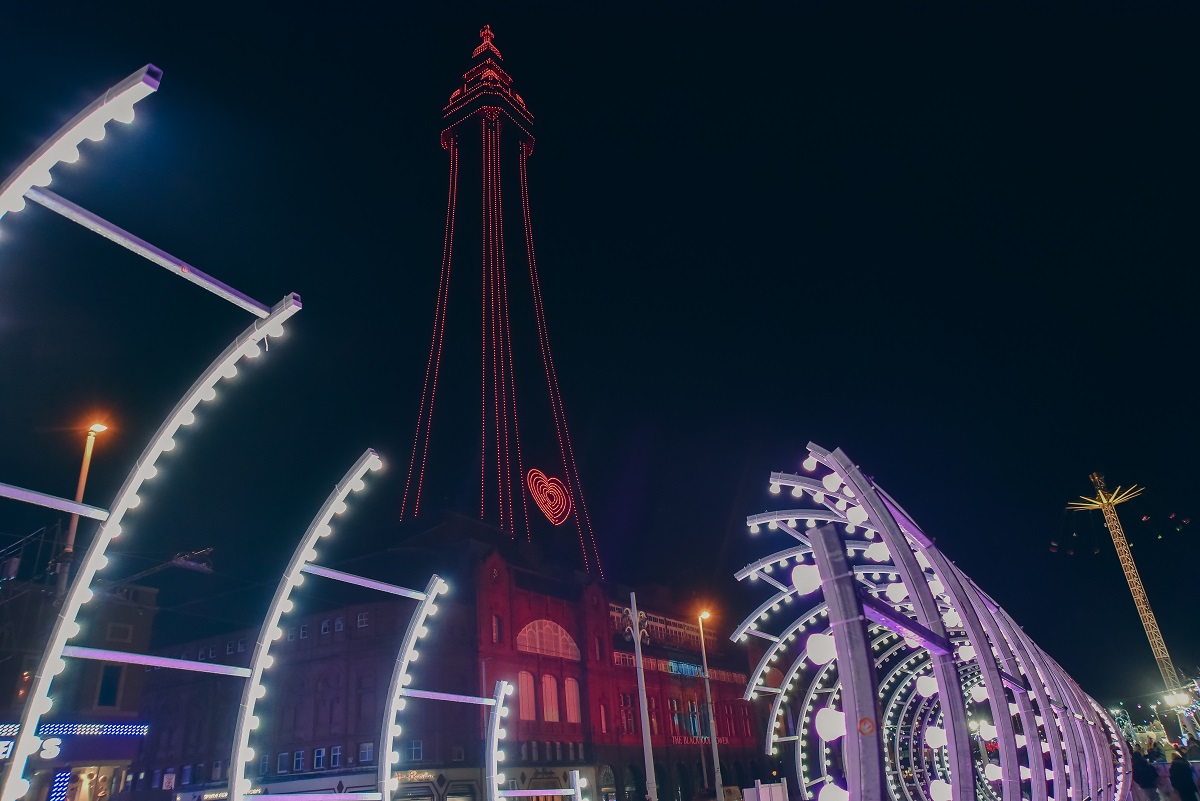
Blackpool at night. Credit: Claire Walmsley Griffiths
While spiking incidents are thankfully rare in Bootleg, a music venue that attracts a local and alternative crowd, mainstream nightclubs in Blackpool evidently have much more work to do before women are safe in them.
More than 50 reports on Reclaim Blackpool Map are concentrated around Queen Street, the Strand and Talbot Square – an area dense with bars and clubs whose bright lights lure tourists.
From one, Trilogy on Talbot Road, the map has received 15 reports, most of them from women under 25 who believe they have been spiked.
In separate incidents, two women, one aged 18 and one 24, recalled waking up with needle marks in their arms and backs after blacking out at Trilogy. One 23 year old said she was found collapsed in the toilets after only having a couple of drinks, a 22 year old only remembers waking up in a hospital bed, and two 18 year old girls separately reported being found collapsed outside the club, one covered in sick and one with no clothes on.
Equally alarming is the treatment many of these women say they received from staff when seeking help. After one drink, 25-year-old Tilly “got very woozy and knew something was wrong. I went straight to the front to door staff and was wobbling and struggling to talk by this point. I asked for help and said I had been spiked and they laughed, saying I drank too much.”
Other women have described being laughed at, “fobbed off” and kicked out.
Although most women don’t report these incidents to police placing a marker of their experience on Reclaim Blackpool Map is something many say they have found cathartic and empowering, as they draw strength from other women with similar experiences and are believed without judgement. Meanwhile, Reclaim Blackpool draws attention to their stories, and tries to engage with venues and authorities.
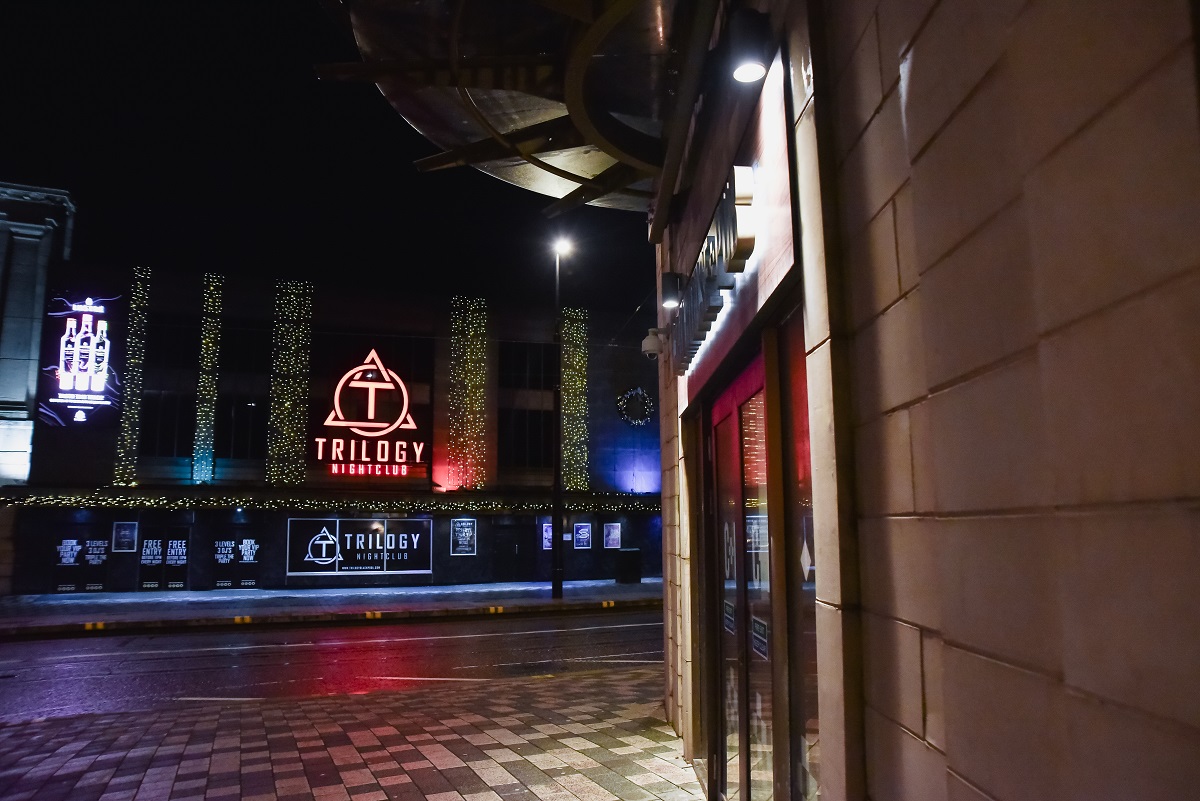
Trilogy in Blackpool. Credit: Claire Walmsley Griffiths
In response to the stories shared from its Trilogy venue, Matt Taylor, site director for Epic Bars & Clubs said: “We take our customers’ safety very seriously and strive to provide great and safe nights out for them.”
He outlined a string of measures “already in place” including staff training to support vulnerable customers, an on-site medic and toilet attendants, and anti-spiking stop tops and drug testing kits behind the bar.
Reclaim Blackpool shared the information with authorities, resulting in a meeting between the venue, licensing, and the police in which the venue agreed to increase drug searches and give away bottled water to customers. The council has installed additional street lighting in the area around the venue.
“I am angered and saddened by the experiences described by women who rightly expect to be able to enjoy themselves in safety on a night out in Blackpool,” said Kate Aldridge, head of commissioning and corporate delivery at Blackpool Council.
“Predators who seek to use drugs to assault women have no place in our nightlife and we are assured, and will continue to seek assurance, that this and other venues are doing all they can to reduce the opportunities for them to act.”
Whether there has been a genuine improvement in women’s safety at Trilogy remains to be seen. The stories on Reclaim Blackpool Map are just the tip of the iceberg but the campaign will continue to chip away at it, raising the collective voice of Blackpool women to demand better.
In an ideal world we wouldn’t need a girls’-only night, but looking around Bootleg Social tonight – as women dance in as silly or as sexy a way as they like, their hands in the air unburdened by the drinks they will safely return to – it’s clear that out of a sad situation, we have made something pretty special.
The Blackpool Lead is now on Substack.
Become a Member, and get our most groundbreaking content first. Become a Founder, and join the newsroom’s internal conversation - meet the writers, the editors and more.


